Launch of GAP
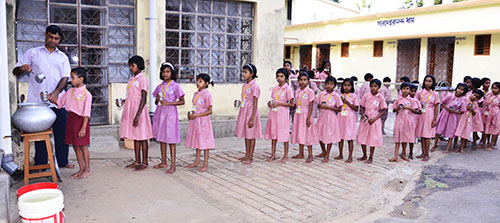
Keeping the aforesaid social conditions in mind, the Gadadhar Abhyudaya Prakalpa (GAP) was launched in October 2010, as a part of the 4-year long 150th Birth Anniversary Celebration of Swami Vivekananda, for the 3-fold development of the needy and backward children — physical, mental and intellectual, and since then it has been running up till now in different parts of India. The project ‘Gadadhar Abhyudaya Prakalpa’ (GAP), named after the childhood name of Sri Ramakrishna, i.e., ‘Gadadhar’, is being implemented for the betterment of the neglected slum and rural children who are often brought from the roadside huts and highly unhygienic garbage-damping areas.

Aims of GAP
- To instil moral and cultural values in the aforesaid targeted children
- To educate them with special coaching on their school subjects
- To inculcate a sense of cleanliness and hygiene in them
- To nourish them for their physical development
- To prepare them to be good citizens of India
Composite Program
The GAP is a composite programme having different activities for physical, mental and intellectual development of the aforesaid targeted children (aged 5 — 12 years) as explained below. This programme is conducted daily for about 2 — 3 hours (about 25 days in a month), in the morning or evening.
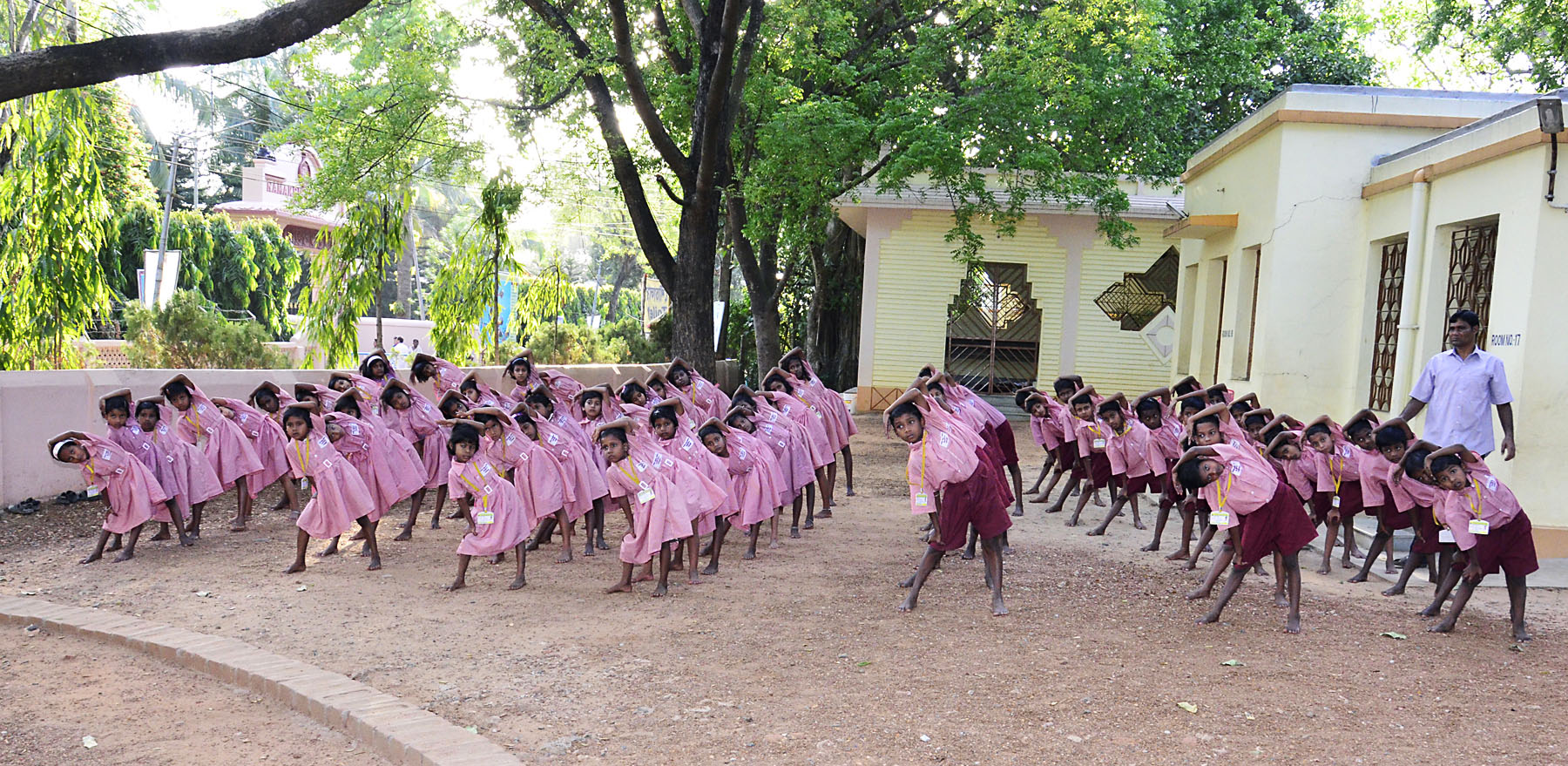
Activities for Physical Development
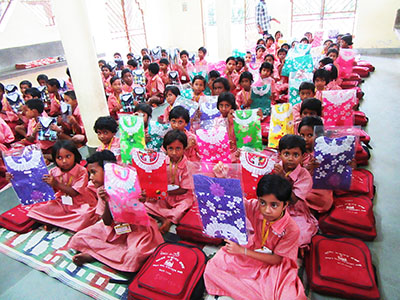
The children get a scope to participate in various games and exercises. They are provided sports items for the same. The session starts with prayers followed by exercises. Students are given basic trainings on health and hygiene, in toilet practice, necessity of safe drinking water, brushing teeth, washing hands, clipping nails, using mosquito net at night, etc. Developing a sense of community participation in keeping the living quarters and environment clean and hygienic, are taught to the children by creating general health awareness. Periodical health check-ups are organised to monitor their body-weight and height, etc., and thereby keep them healthy. Minimum medicines, wherever required, are administered as per the doctor’s advice. At the end of each day’s programme, nutritive food supplements are served to all the participants, to counter the problem of malnutrition. As a part of the Physical Development, the GAP children are periodically provided the following items: school bags, school uniforms, study materials like notebooks, pen, pencil, eraser, etc., books, umbrellas / raincoats, footwear, toiletry items like toothpaste, toothbrush, tongue-cleaner, soap, oil, nail-clipper, etc.
Activities for Mental Development
The children are exposed to various arts & skills as per the local culture and tradition in music, drama, chanting, painting etc. Universal prayers are taught to instil national integration and to encourage holistic living. The children are also guided to practise meditation and yoga under the guidance of competent teachers.
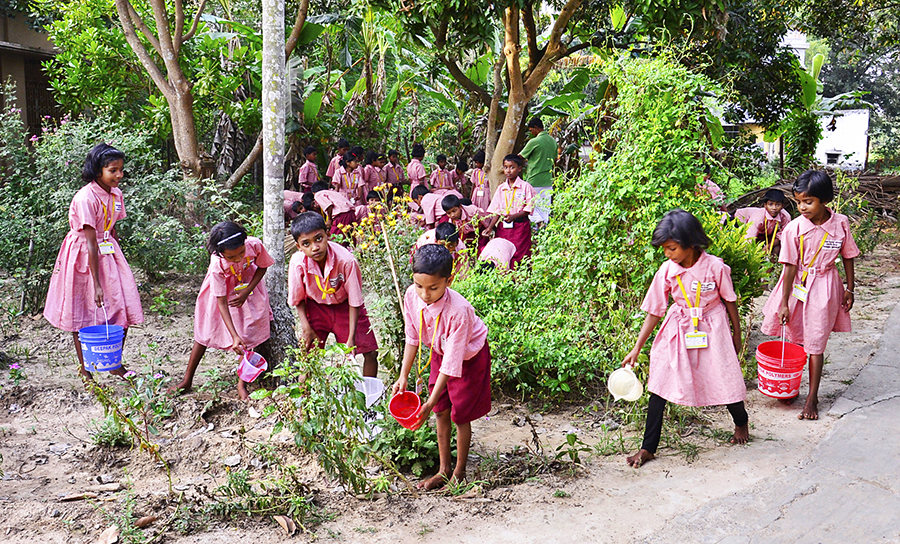
Value Education as mentioned above, is also part of the GAP programme. The lives of great personalities in the field of literature, religion, history, and freedom movement are taught to the students to imbibe their noble qualities and sacrifice for the cause. Periodically, films on Value Education and other inspirational themes are screened to the students for exposing our national heritage and culture. The dedicated teachers of GAP are the right mentors of the children with proper attitude and awareness. Gifted with a healthy mental frame, they instil a healthy mentality into the children.
They try to help in:
- Nurturing the child,
- Imparting values in the child,
- Moulding the character of the child, and
- Teaching good habits that a child can cultivate at home.
The Impact & Case Studies of GAP
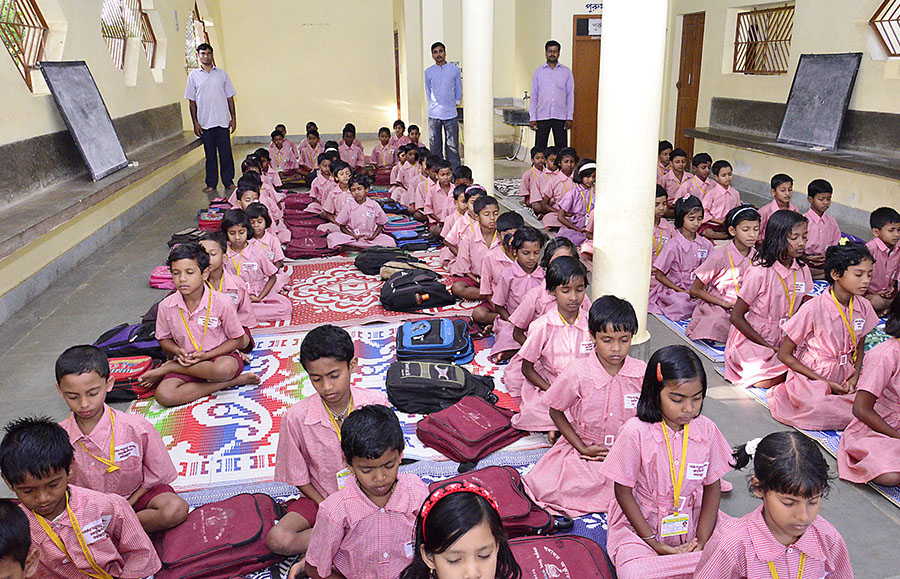
The GAP provided an opportunity to thousands of underprivileged children — irrespective of caste, creed, colour, religion, etc., hailed from city slums and interior villages in different parts of India, for their aforesaid 3-fold development. The project created immense impact on these children, their parents and localities, so much so that the inhabitants of those areas urged us to continue the project. This can be confirmed by referring to some Impacts & Case Studies received from our implementing centres.
The Continuation & Financial Aspects of GAP
A project on “Gadadhar Abhyudaya Prakalpa” is successfully being continued for the children between the age of 5 years to 12 years with a mandate towards the development of physical, mental and Intellectual status of the children. The project was initiated in 2010 to commemorate the 150th Birth Anniversary of Swami Vivekananda.
There are two units under this project. One at Kamarpukur and another located at Deregram village which is 4 Kms away from Kamarpukur. The Kamarpukur unit is having 85 (Eighty five) Children while at Deregram unit there are 50 (fifty) Children.
The children are provided with daily Nutritious food items along with milk. All necessary educational materials together with uniforms, school bags,chappal,winter garments and toiletry items are being supplied to them regularly.
To make the children healthy, medical check-up Camp is conducted twice in a month. Necessary treatment is also provided by the doctors. An educational tour is conducted annually for the balanced growth of the students with exposure to different places with diverse culture. The total expenditure for running the project in these two units is borne by TCS Foundation, Mumbai.